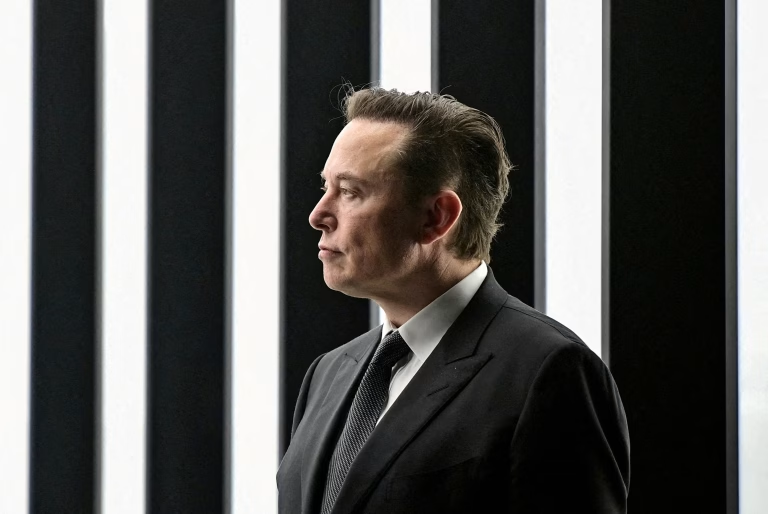Elon Musk becomes world’s first half-trillionaire after his net worth briefly surpassed $500bn on Wednesday, according to the Forbes billionaires index. His wealth peaked at $500.1bn during New York trading hours before dipping slightly to just above $499bn later in the day. This extraordinary figure reinforces his dominance as the richest individual alive, placing him far ahead of competitors in the global technology sector.
The surge in Elon Musk’s fortune stems from sharp gains in Tesla’s share price and strong valuations of his other ventures, including the rocket company SpaceX and artificial intelligence startup xAI. Tesla shares rose more than 3.3% at the close of Wednesday trading, extending their year-to-date gains to over 20%. Investors have shown renewed confidence in the electric carmaker, in part because Musk has devoted more of his time and focus to his businesses rather than political debates.
Elon Musk’s immense wealth is tied closely to his more than 12% stake in Tesla, which remains the cornerstone of his fortune. The electric vehicle company has seen a wave of optimism as demand stabilizes, artificial intelligence plays a larger role in production, and the global EV market continues to expand. His other ventures, especially SpaceX and xAI, have also attracted significant investor attention, fueling speculation that they will deliver long-term growth and reinforce Musk’s leadership in technology.
Forbes noted that Oracle founder Larry Ellison holds the second spot on the billionaires index with a fortune of around $350.7bn. Ellison briefly overtook Musk last month after Oracle’s stock soared by over 40%, boosted by strong growth in its cloud infrastructure business and new artificial intelligence partnerships. However, Musk’s rapid gains in recent weeks have restored his position at the top, widening the gap between him and other billionaires.
Elon Musk’s rise to half-trillionaire status highlights how market performance directly affects the fortunes of the world’s wealthiest entrepreneurs. Unlike traditional billionaires who rely heavily on diversified holdings, Musk’s net worth depends largely on the valuation of the companies he leads. Tesla alone accounts for the majority of his fortune, with its performance on the stock market often serving as a barometer for his financial standing.
Beyond Tesla, Elon Musk’s influence stretches across industries. SpaceX continues to dominate the commercial spaceflight market, with contracts ranging from satellite launches to NASA missions. Its valuation has climbed steadily, with private funding rounds reflecting strong demand from investors. Meanwhile, xAI, Musk’s artificial intelligence company, has emerged as one of the fastest-growing startups in the sector, drawing attention as businesses and governments accelerate adoption of AI-driven technologies. These ventures add both financial value and strategic influence to Musk’s empire.
The billionaire has also regained focus at Tesla after a period of criticism. Earlier this year, detractors accused him of devoting too much attention to politics and his ownership of the social media platform X. He had drawn controversy for his involvement with the Trump administration’s Department of Government Efficiency, a body tasked with reducing spending and cutting federal jobs. His outspoken views on issues such as immigration and diversity, equity, and inclusion (DEI) programs also polarized opinion. Recently, however, Tesla’s leadership has reassured shareholders that Musk is fully engaged in guiding the company.
Robyn Denholm, chair of Tesla’s board, said in September that Musk was “front and centre” at the automaker once again. The board has also discussed a potential pay package worth over $1 trillion if Musk can achieve a series of ambitious targets over the next decade. To qualify, Musk would need to grow Tesla’s market value eightfold, sell a million humanoid AI robots, deliver another 12 million vehicles, and meet several other technological and financial milestones.
The idea of such a massive reward reflects both Tesla’s confidence in Musk’s leadership and the scale of expectations placed upon him. Supporters argue that Elon Musk has repeatedly defied skeptics, turning once far-fetched ideas into reality, from electric cars becoming mainstream to rockets landing themselves after space missions. Critics, however, warn that tying Tesla’s future so closely to Musk risks instability if market conditions change or if the entrepreneur becomes distracted by his many ventures.
Still, the landmark moment when Elon Musk becomes world’s first half-trillionaire underscores his unmatched influence in global business. It cements his position not only as the wealthiest person on earth but also as one of the most powerful figures shaping the future of energy, transportation, space, and artificial intelligence. While valuations may rise and fall with market shifts, Musk’s status as a symbol of technological ambition seems secure.
His journey to this milestone demonstrates how innovation, risk-taking, and relentless pursuit of vision can translate into extraordinary wealth and impact. As markets continue to track Tesla’s growth, SpaceX’s achievements, and xAI’s evolution, the world will watch closely to see whether Elon Musk can maintain or even extend his historic lead.

